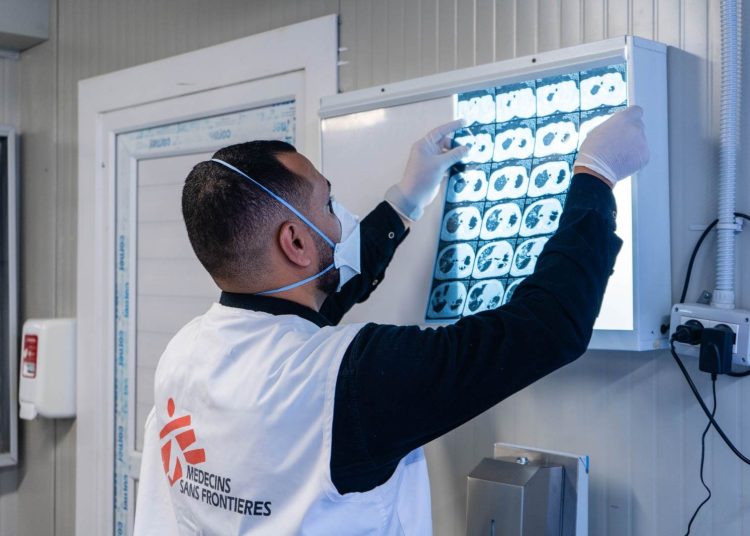Médecins Sans Frontières Libya (MSF) reported that in 2022 it had provided medical care to more than 50,000 people in the country.
MSF said it had started assisting people in Libya after the Libyan conflict started in 2011, supporting public health facilities such as Public Health Care Centres, hospitals, and Directorate for Combatting Illegal Migration’s Detention Centres.
“We offer assistance to people who need medical and psychological support. It does not matter which country they are from, or what their political affiliations are. We give priority to those in the most severe and immediate danger. Our principles reflect our work on the ground; patients first, impartiality, independence, bearing witness, neutrality, and transparency.” Says Gabriele Ganci, MSF Head of Mission in Libya.
MSF said its teams provide primary health care, mental health support and sexual and reproductive health consultations in health facilities, inside detention centres, and in urban settings to Libyans and non-Libyans.
The teams also offer protection services, aiming to identify vulnerable people and refer them for specialist care in hospitals and to other organisations in Tripoli that could meet their specific needs.
In 2022, MSF said it provided medical support to more than 50,000 people in Tripoli, Misrata, Zawia, Zuwara, Bin Walid, Nesma, Zletan and Khoms. It said it is the only organisation in the country supporting access to treatment for multi-drug resistant tuberculosis (MDR-TB).
The organisation reported that it also supported more than 6,500 consultations in the National Centre for Diseases Control (NCDC) TB clinic and at the National Tuberculosis Programme’s (NTP) Outpatient Department (OPD) in Misrata and Tripoli.
“It is fundamental to our humanitarian organisation to always act in the best interest of patients, also respect their confidentiality, their right to make their own decisions and do them no harm.” Gabriele Ganci said. “To ensure access to medical care, we also sometimes provide social support to help people reach their basic needs. This ensures that we provide quality medical services to Libyans and non-Libyans.”, he concluded.











